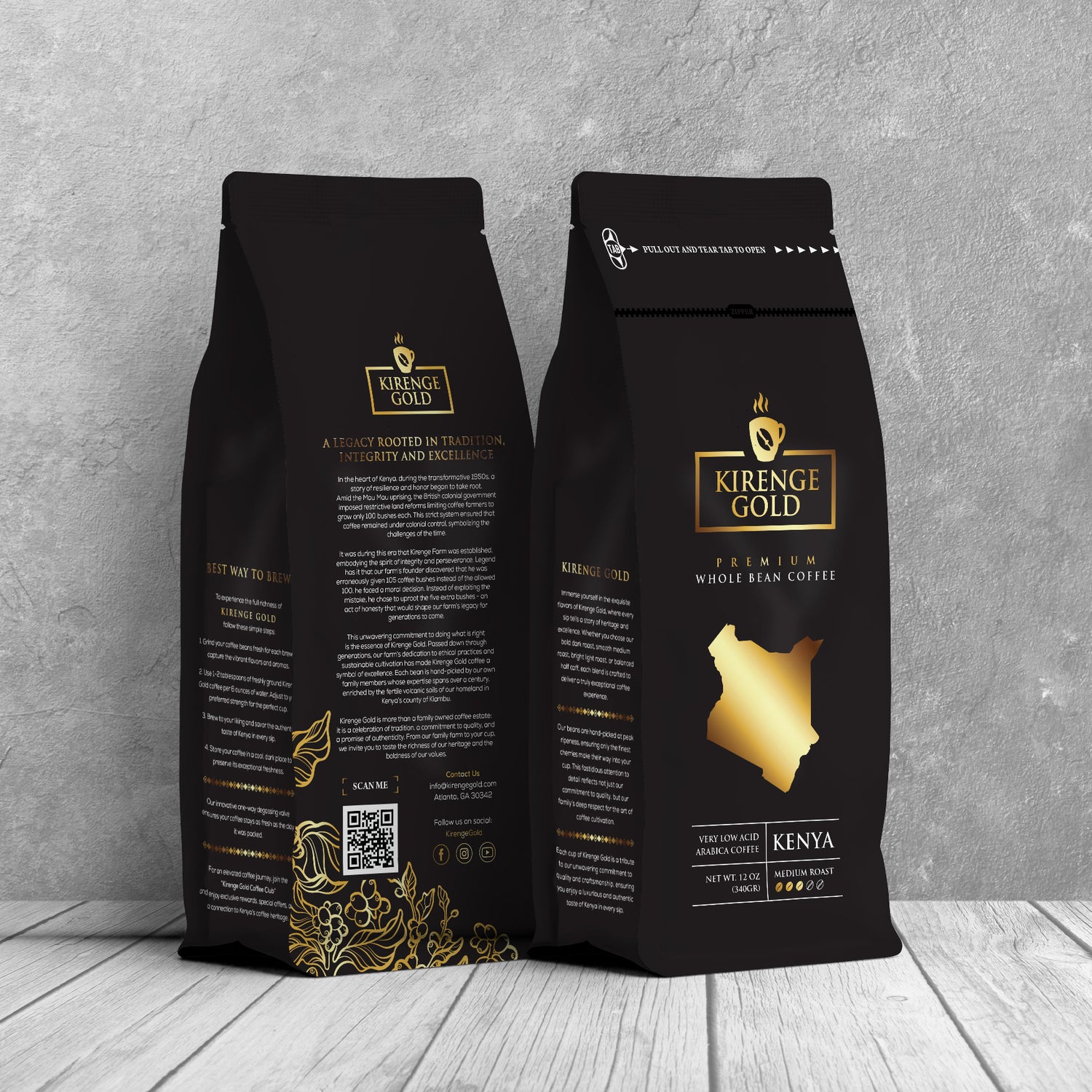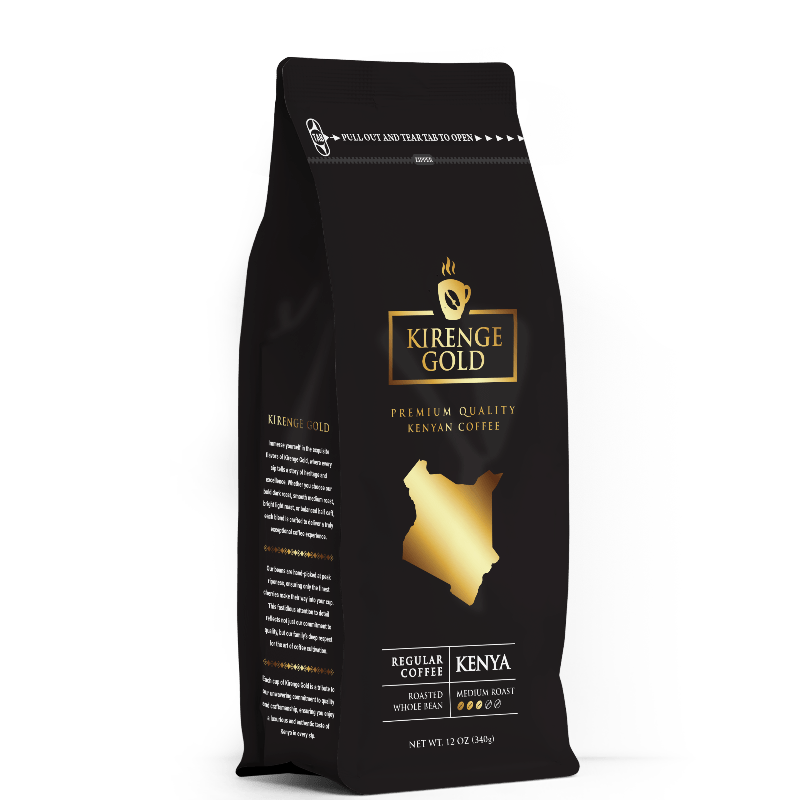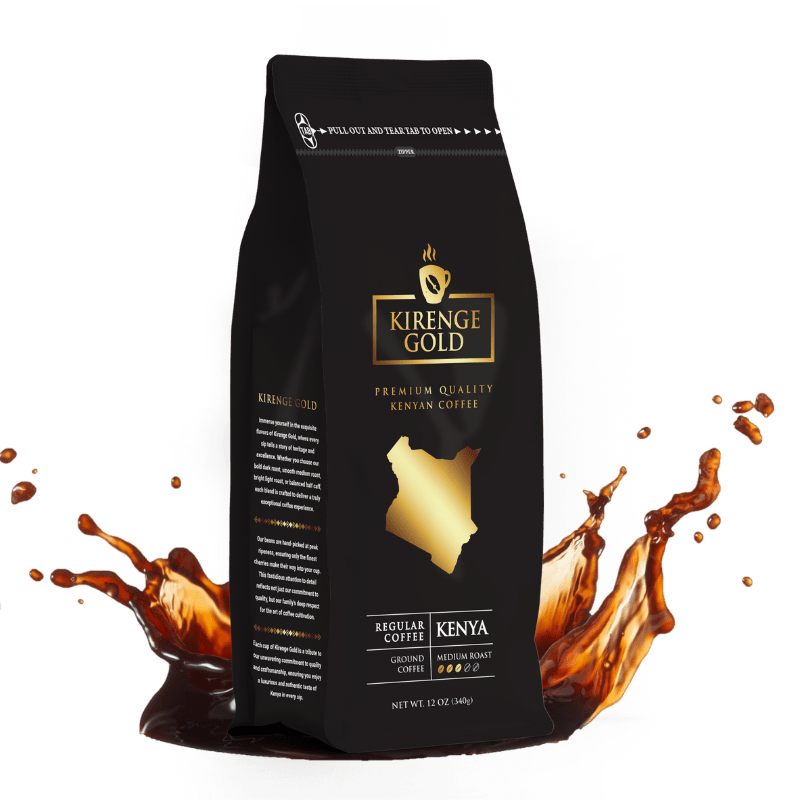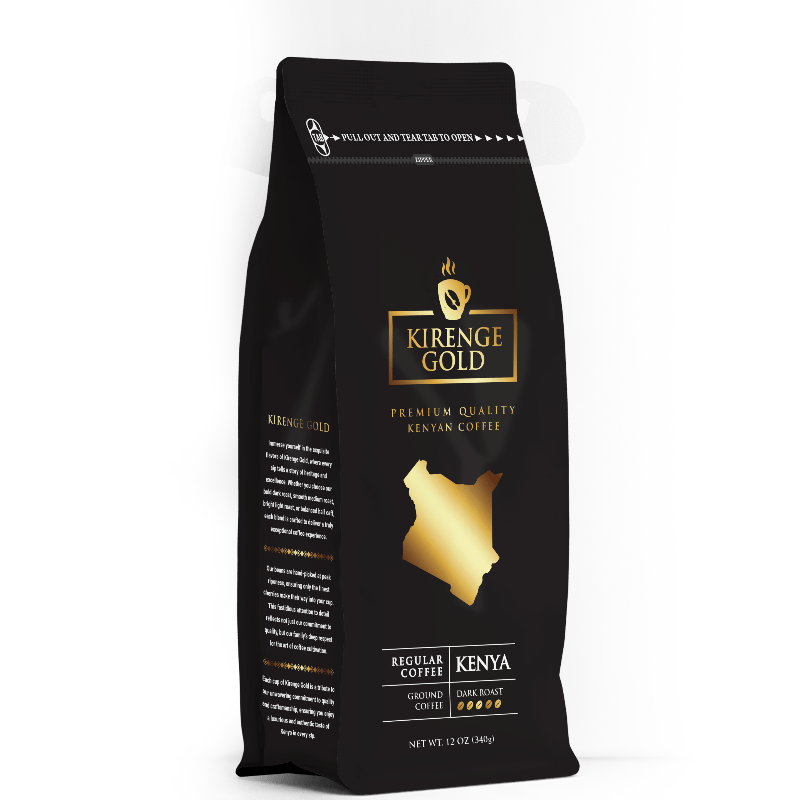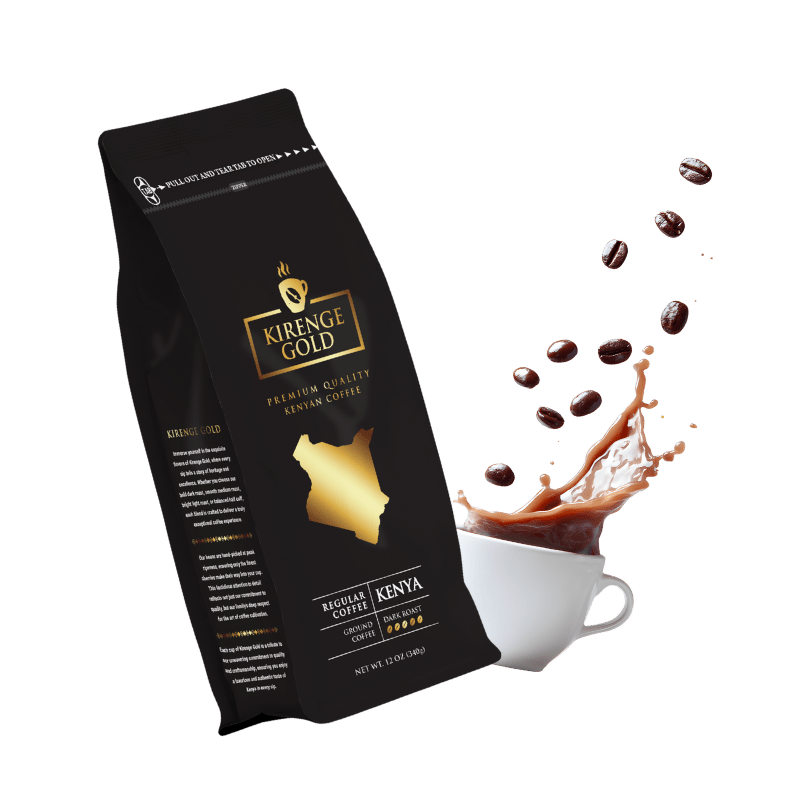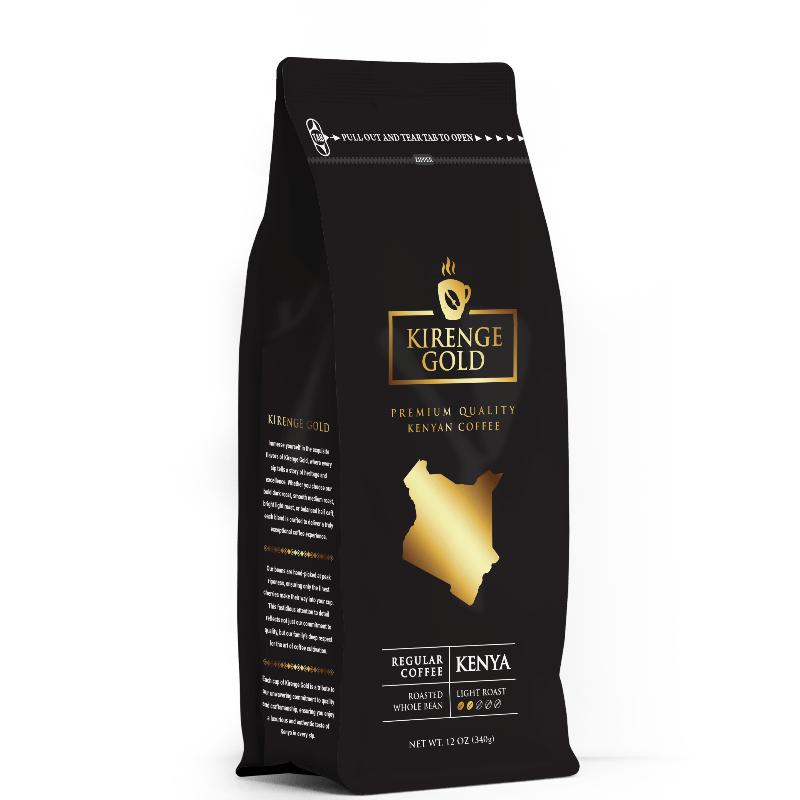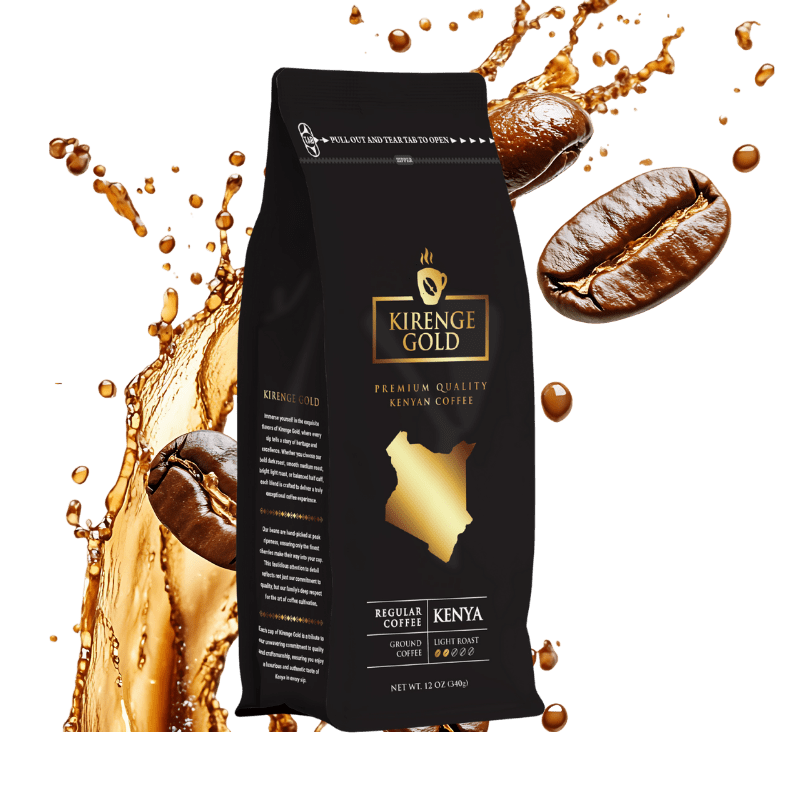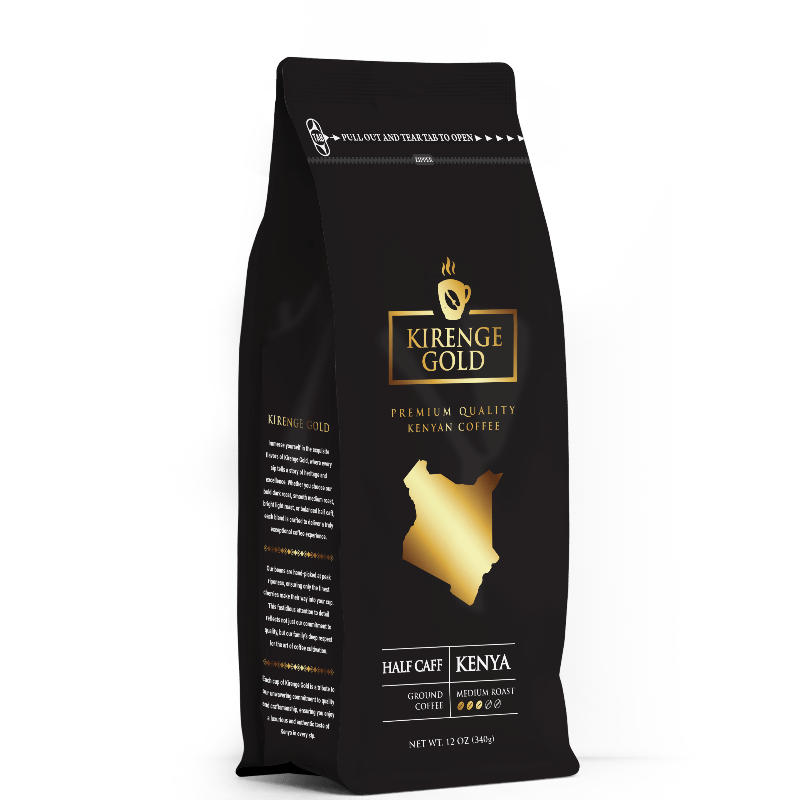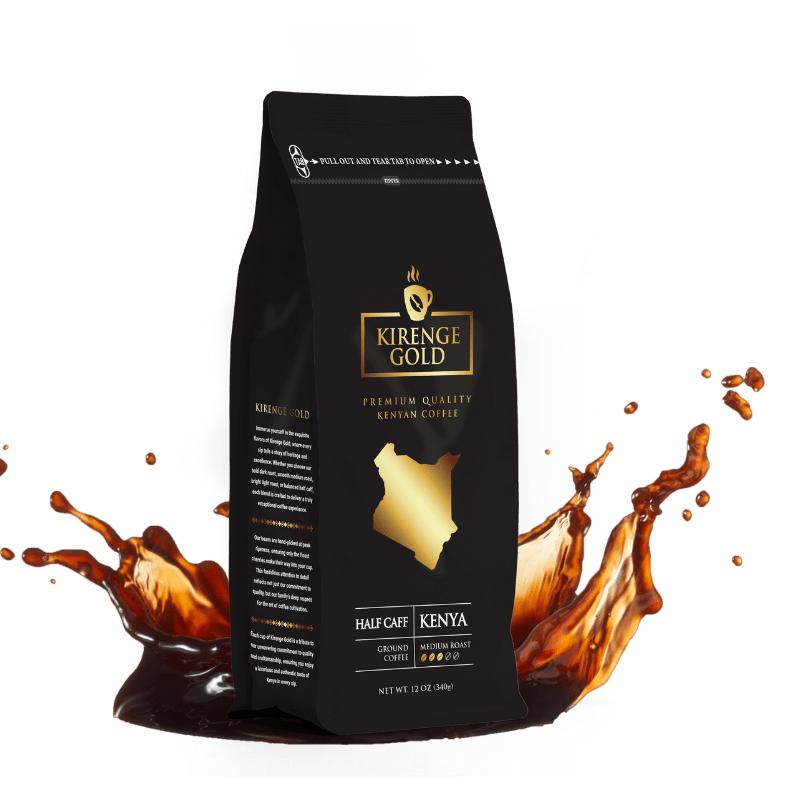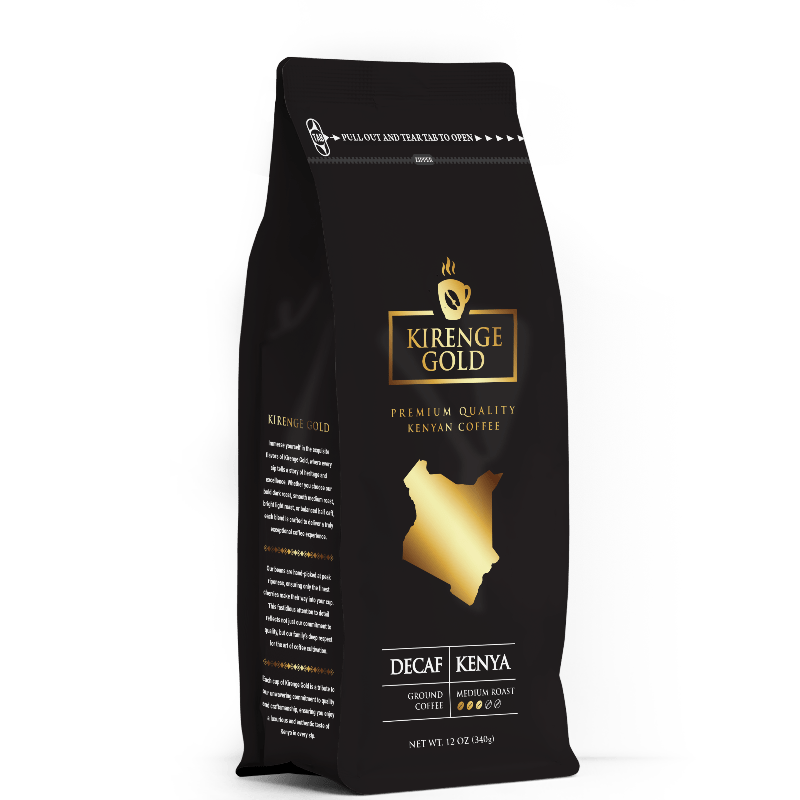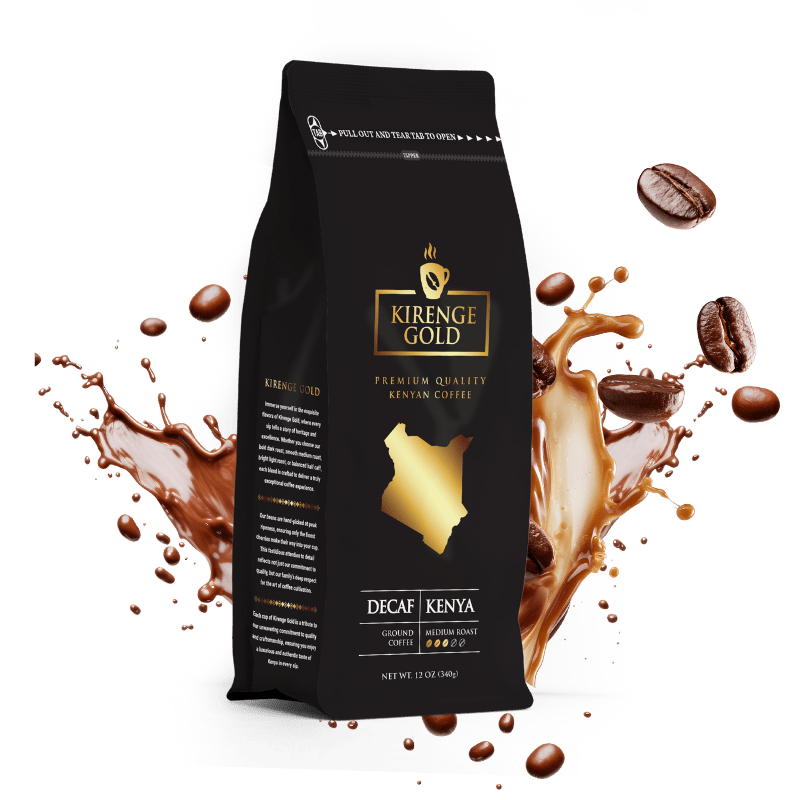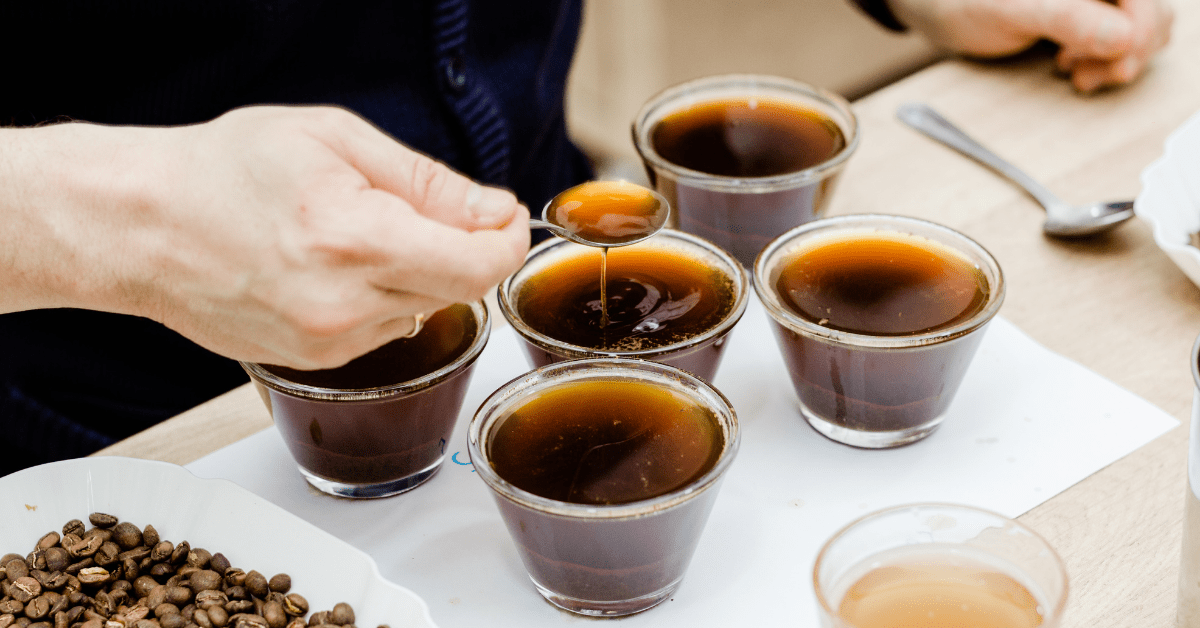
What Does Kenyan Coffee Taste Like?
When coffee enthusiasts discuss the world's finest single-origin coffees, Kenyan coffee consistently tops the list. Renowned for its bright acidity, complex fruit notes, and wine-like body, authentic Kenyan coffee delivers a flavor experience unlike any other. If you've been searching for premium Kenyan coffee beans in the United States, understanding what makes this origin special will transform how you enjoy your morning cup.
What Does Kenyan Coffee Taste Like?
Kenyan coffee offers one of the most distinctive and recognizable flavor profiles in the specialty coffee world. When you brew a cup of genuine Kenyan beans, expect:
Bright, Vibrant Acidity
The high-altitude growing conditions in Kenya produce beans with a pronounced, sparkling acidity. This isn't harsh or sour—rather, it's a lively brightness that brings the coffee to life on your palate, similar to biting into a crisp apple or tasting a fine wine.
Intense Fruit Notes
The signature characteristic of Kenyan coffee is its fruit-forward taste. Most cups feature:
- Blackcurrant (the most iconic Kenyan note)
- Red berries (strawberry, raspberry)
- Stone fruits (plum, cherry)
- Citrus (lemon, orange, grapefruit)
Full Body with Wine-Like Complexity
Despite its bright acidity, Kenyan coffee maintains a full, syrupy body. The mouthfeel is rich and coating, with layers of flavor that evolve as the coffee cools. Many coffee professionals compare high-quality Kenyan coffee to a complex red wine.
Sweet, Clean Finish
Well-processed Kenyan beans deliver exceptional sweetness with notes of brown sugar, caramel, or honey, balanced by subtle chocolate and spice undertones in the finish.
The Unique Kenyan Coffee Flavor Profile Explained
Why Does Kenyan Coffee Taste So Different?
Several factors combine to create Kenya's unmistakable coffee character:
Volcanic Soil Rich in Nutrients
Kenya's coffee-growing regions benefit from volcanic soil packed with minerals and nutrients. This terroir imparts unique flavors that can't be replicated elsewhere, contributing to the coffee's bright acidity and fruit-forward profile.
High-Altitude Growing Conditions
Most Kenyan coffee grows at elevations between 1,400 and 2,000 meters above sea level. These high altitudes mean:
- Cooler temperatures slow cherry maturation
- Beans develop more complex sugars
- Denser beans with concentrated flavors
- Enhanced acidity and sweetness
Meticulous Processing Methods
Kenya pioneered the double-washed (or Kenyan washed) processing method, which involves:
- Fermentation for 24-72 hours
- Washing and soaking in clean water
- A second fermentation period
- Final washing and drying
This intensive process creates exceptionally clean, bright coffees with pronounced acidity and clarity of flavor.
Superior Coffee Varieties
Kenya grows primarily SL28 and SL34 coffee varieties, developed specifically for the region's conditions. These cultivars naturally produce the blackcurrant notes and complex acidity that define Kenyan coffee.

Kenyan Coffee Tasting Notes: A Complete Breakdown
When professional coffee tasters (Q Graders) evaluate Kenyan coffee, they commonly identify these notes:
Primary Flavors:
- Blackcurrant and cassis
- Red berries (raspberry, strawberry, cranberry)
- Tomato (yes, really—a pleasant, sweet tomato note)
- Citrus fruits (lemon, lime, grapefruit)
Secondary Flavors:
- Floral notes (jasmine, hibiscus)
- Stone fruits (plum, apricot)
- Wine-like characteristics
- Brown sugar sweetness
Finish Notes:
- Dark chocolate
- Caramel
- Warm spices (cinnamon, cardamom)
- Molasses
How to Brew Kenyan Coffee for Maximum Flavor
To experience the full Kenyan coffee flavor profile, brewing method matters:
Pour-Over (Recommended)
Methods like V60, Chemex, or Kalita Wave highlight Kenya's bright acidity and fruit notes. Use a 1:16 coffee-to-water ratio and water at 200-205°F.
French Press
For those who prefer fuller body, French press brings out Kenyan coffee's syrupy mouthfeel and chocolate notes while maintaining fruit character.
Espresso
Kenyan beans make exceptional espresso with vibrant acidity cutting through milk in lattes and cappuccinos. The fruit notes create unique, memorable drinks.
Cold Brew
Cold brewing Kenyan coffee emphasizes sweetness and reduces acidity, creating a smooth, fruit-forward concentrate perfect for summer.
Why Kirenge Gold Offers the Best Kenyan Coffee in the United States
Not all Kenyan coffee sold in America delivers the authentic taste you're seeking. Mass-market beans often sit in warehouses for months, losing the vibrant characteristics that make Kenyan coffee special. Here's what sets Kirenge Gold apart:
Direct Trade Relationships
We partner directly with smallholder farmers in Kenya's premier coffee-growing regions. This ensures:
- Fair compensation for farmers
- Transparency in sourcing
- Selection of only the finest lots
- Authentic Kenyan coffee that supports sustainable farming
Learn the difference between Direct Trade and Fair Trade
Small-Batch Roasting
Unlike large commercial roasters, we roast in small batches to order. Your beans arrive:
- Freshly roasted within days of your order
- At peak flavor potential
- With full aromatic complexity intact
- Properly degassed for optimal brewing
Quality You Can Taste
Every bag of Kirenge Gold undergoes rigorous quality control. We source specialty-grade beans (scoring 80+ points on the SCA scale) that showcase Kenya's signature blackcurrant notes and bright acidity.
Fast, Reliable Delivery Across the USA
Whether you're in New York, California, Texas, or anywhere in between, we ship quickly to ensure you receive the freshest possible coffee. Most orders arrive within 2-4 business days.
Comparing Kenyan Coffee to Other Origins
Understanding how Kenyan coffee differs from other popular origins helps you appreciate its unique character:
Kenyan vs. Ethiopian Coffee
Both are of African origins with fruit-forward profiles, but:
- Ethiopian coffee tends toward blueberry and floral notes
- Kenyan coffee features blackcurrant and more pronounced acidity
- Kenya typically has a fuller body than Ethiopian coffees
Kenyan vs. Colombian Coffee
- Colombian coffee offers balanced, chocolatey flavors with mild acidity
- Kenyan coffee delivers bright, intense fruit notes with wine-like complexity
- Kenya is more distinctive; Colombia is more approachable
Kenyan vs. Costa Rican Coffee
- Both have clean, bright profiles from washed processing
- Costa Rican coffee leans toward citrus and honey
- Kenyan coffee brings more intense fruit and higher acidity
Who Should Buy Kenyan Coffee?
Kenyan coffee appeals to:
- Coffee enthusiasts seeking complex, distinctive flavors
- Pour-over lovers who appreciate bright, clean cups
- Anyone who enjoys fruit-forward coffees
- Specialty coffee drinkers looking to explore premium single origins
- Home baristas wanting to create standout espresso drinks
How to Store Your Kenyan Coffee Beans
Preserve Kenya's delicate flavors by:
- Storing beans in an airtight container
- Keeping them in a cool, dark place (not the refrigerator)
- Grinding just before brewing
- Using beans within 2-4 weeks of the roast date
Learn more about the Best Ways to Store Coffee
Experience Authentic Kenyan Coffee Today
Kenyan coffee isn't just another origin—it's a revelation. The bright blackcurrant notes, wine-like body, and sparkling acidity create a cup that's simultaneously familiar and exotic, comforting and exciting.
At Kirenge Gold, we're committed to bringing you the authentic taste of Kenya's finest coffee. Every bag represents our direct relationships with Kenyan farmers, our dedication to quality, and our passion for exceptional coffee.
Ready to taste the difference?
Order Kirenge Gold Kenyan coffee today and discover why coffee lovers across the United States choose us for authentic, freshly roasted beans delivered straight to their door. Whether you're brewing your first cup of Kenyan coffee or you're a longtime fan seeking the real thing, we guarantee you'll taste the Kirenge Gold difference.
Frequently Asked Questions About Kenyan Coffee
Is Kenyan coffee strong?
Kenyan coffee has bold, intense flavors but isn't necessarily higher in caffeine. The "strength" comes from its bright acidity and complex fruit notes.
Why is Kenyan coffee so expensive?
Quality Kenyan coffee costs more due to high-altitude growing, labor-intensive processing, and Kenya's auction system that rewards exceptional lots.
What's the best roast level for Kenyan coffee?
Medium roasts (City to Full City) best preserve Kenya's signature fruit notes and acidity. Darker roasts diminish these characteristics.
Can I use Kenyan coffee for espresso?
Absolutely. Kenyan beans make excellent espresso with vibrant, fruit-forward shots that shine in milk-based drinks.
How do I know if my Kenyan coffee is authentic?
Look for specific region information (Nyeri, Kirinyaga, Murang'a, Kiambu), processing details, and buy from reputable roasters like Kirenge Gold, who can verify origin.
Share

